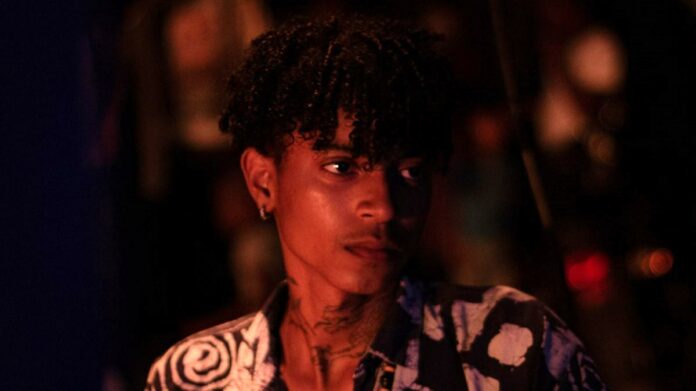On an assignment to the Dominican Republic, Emma encounters a middle-aged woman on the beach one day. The lady makes braids in Emma’s hair, and they exchange a few words and express their desire to go back to their country someday, which is in Africa. This short sequence, which lasts not more than a couple of minutes, forms the basis of “Bantu Mama,” bringing out its theme of rooting for one’s cultural beginnings and living in a foreign country while yearning for the motherland.
Emma is an African working in France, living alone with her bird. Trouble ensues when she gets mixed up in drug trafficking and is arrested while transporting drugs from the Dominican Republic. Following her arrest, she escapes from the police after a car accident changes her destiny. She is rescued by two teenagers, who take her to their home in a neighborhood of Santo Domingo. Together with Tina, the teenage girl, Emma makes a plan to go back to France and avoid arrest in the Dominican Republic. Director Ivan Herrera and Co-Writer Clarisse Albrect (who also plays Emma) try to build a strong cultural landscape through a thriller-like narrative and just manage to bring their point across in parts and pieces. While hiding from the police, Emma turns the place where the three siblings live into a home by teaching them new things and also making food for them that her own mother used to make. There is a strong sense of yearning for a lost land where their true identity blossoms and Emma finds in all three of them the family which she had been missing for a long time. Her relationship with the youngest of the three, Cuki, develops into a stronger one as the film progresses, and Tina requests that she take Cuki along with her to France, as he deserves a better life away from all the struggles in the neighborhood. Through all of this, a stark picture is trying to be painted of the conditions of people living in San Domingo, where the police are always hunting down illegal immigrants and teenagers who are in the drug business. However, this is just pointed at and never explored fully. Even the mutual relationships of the four are never given pressing importance, as if it is just being told to us how close they are rather than taking us through events that lead to their growth. There is a lost sense of organics whenever their closeness is depicted as if there’s always a pressure to lead that bond to something. As a result, a seamless connection with either of the characters seems amiss.
There is a constant attempt to bring out the dynamics of the place where the entire story takes place by showing the different spaces that exist along with the music which is relevant to the teenagers growing up. We hear the thumping beats of the rap music, and there are multiple scenes showing teenagers trying to come up with their own verses; but all of that just stays there because of the manner in which it is told, never making it come closer to either the story or its heart. There are multiple images of birds that we keep seeing; birds that Emma sees in Santa Domingo, which are most probably migratory birds that keep traveling places, just like her, who is away from her homeland, making her way through a distinct language and culture. Towards the end, some of these metaphors start to feel too literal to be able to signify the ideas that are already clear even without them.
The film has sprinkled its frames filled with elements of a taut thriller, the nostalgia of going back to where the roots are. It begins to feel to be doing too many things in a small duration when it also tries to delve into the politics of the place where it takes place and then shifts to an altogether different stance towards the end. What the film needed was a lingering exploration of the intimate bonds that the four teenagers share and how the teenagers begin to see a figure of maternity in a stranger whom they know nothing about. In giving little to no time for bonds to develop, the slow aesthetics of the film are disjointed from the various things that are layered down in the narrative. The screenplay demands a better coming together of all the story elements, and the images seem to be waiting for that vehicle, which would expand its themes to the point where it really manages to pierce the heart. It stays true in trying to bring alive the culture and the politics of a troubled place, and one wishes there were more to it than what came crumbling down in the almost 80-minute duration. And so, “Bantu Mama” manages to be a film rich in aesthetics and rooted in culture but falls short of making either of the two come together for a wholesome experience.

